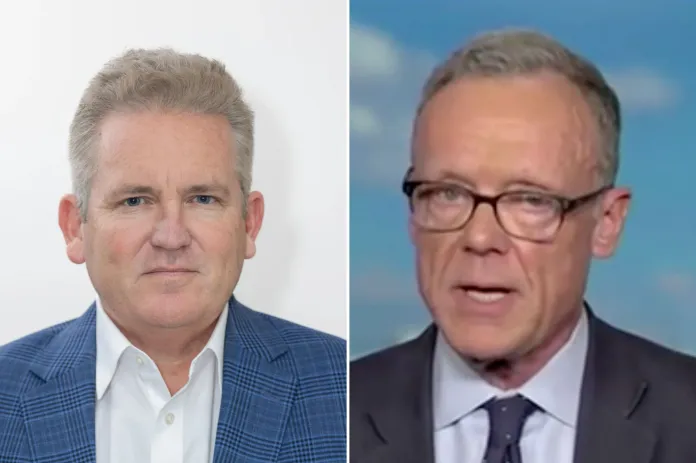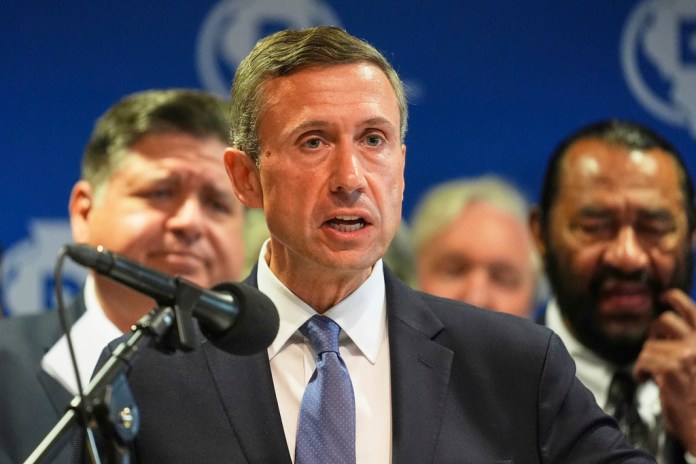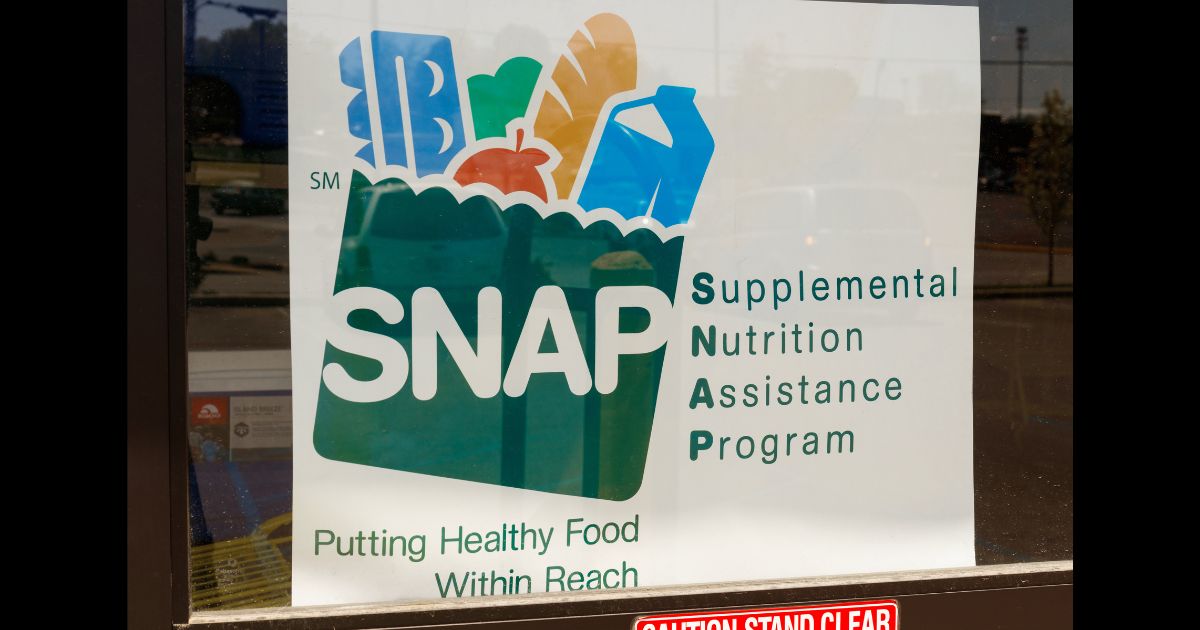The United Kingdom’s grooming gangs – Washington Examiner
The article discusses the issue of grooming gangs in the United Kingdom, particularly focusing on the long history of systemic abuse perpetrated against underage girls, predominantly by groups of mostly Pakistani Muslim men. This abuse, characterized by grooming, rape, trafficking, and violence, has been documented in numerous towns and cities across the contry, with thousands of victims reported over the decades. Despite extensive evidence and calls for action, authorities, including police and local politicians, have often failed to take adequate measures to address these crimes, instead choosing to protect the perpetrators out of fear of causing racial tensions and maintaining political correctness.
Specific cases are highlighted, such as the tragic stories of young girls who experienced violence and exploitation at the hands of thier abusers, sometimes with the complicity or indifference of social services and law enforcement. the culture of silence and denial has allowed these gangs to operate with near-impunity, leading to a significant public outcry and demands for a national inquiry into the failures of the system.
The article argues that the political landscape, particularly the Labour Party’s reliance on urban Muslim votes, has resulted in a protective atmosphere for these gangs, which has severely impacted community relations and led to a staggering amount of unresolved crimes. Considering ongoing abuse and inadequate governmental response, the text calls attention to the urgent need for genuine accountability and reform to protect vulnerable populations and address the ingrained issues within the system.
The United Kingdom’s grooming gangs
The British are renowned for their class system, their tea-drinking, and, now that Elon Musk has told the world about it, the grooming, rape, trafficking, and torture of underage girls by gangs of mostly Pakistani Muslim origin. This abuse has gone on for decades. The police have documented it in at least 50 towns and cities. The number of known victims runs into the thousands. It may run into the hundreds of thousands. It is still happening. Hardly any of the perpetrators have been prosecuted.
A small number of convictions were secured in the 2010s. Local inquiries were held in the northern English towns where the rape gangs were first detected. All of those towns had Labour Party MPs and a Labour-controlled local council. On Jan. 6, the Labour majority in the House of Commons voted down a Conservative amendment calling for a national inquiry.
Suffer the children
“Anna” was from Bradford, Yorkshire. She was 14 years old and living in a children’s home when she reported that she had been raped repeatedly. When she was 15, her social worker attended her “marriage,” an exchange of Muslim vows. Social services arranged for her to be “fostered” by her rapist’s parents, who controlled and abused her.
In Telford, Shropshire, 22-year-old Azhar Ali Mehmood started grooming Lucy Lowe when she was 12. She was pregnant at 14 and had his baby. In her diaries, she described how he had forced her to have sex with several older men. She was pregnant for the second time when Mehmood poured gasoline through the letterbox of her family home. The fire killed Lucy, her unborn child, and her mother.
In Rotherham, Yorkshire, 11-year-old Sarah was living in a children’s home when she was raped for the first time. When police arrived, she and another girl were, she said, “pushed to the side of the bed, naked, with no clothes on.” A police officer said, “There is nobody here,” and left. The rape and beatings went on for five or six years and involved 40 to 50 men. When she reported it to the police, they accused her of lying.
“Emma,” another Rotherham girl, was given drugs and alcohol by a gang at 12 and raped at 13. The gang members parked their cars outside her mother’s house and threatened that they would rape her mother, too, unless she allowed the abuse to continue.
“Paul,” the father of a Rotherham girl who was first raped at 14, went to the police four times. He said the police’s attitude was that “if she’s knocking about with them, they must be little slappers [promiscuous]. Let them get on with it.” After Paul’s fourth visit to the police, he was told to leave or face arrest.
One night in Oldham, near Manchester, 12-year-old “Sophie” went to a police station and told the desk officer that she had just been molested in a graveyard by a man named “Ali.” The desk officer told her to come back with an adult when she was sober. Two men accosted her in the police station. They took her to their car and then picked up a third man. The three of them raped her in the car and then dumped her on the street. Lost, she asked a man named Sarwar Ali for directions. He took her to his house, raped her, and gave her money for a bus fare home. A man named Shakil Chowdhury pulled up in his car and offered her a ride home. He abducted her and took her to a house where he and four other men repeatedly raped her.
In Manchester, Victoria Agoglia was repeatedly drugged and raped before being given a fatal dose of heroin at the age of 15. In Blackpool, 14-year-old Charlene Downes disappeared near a takeaway shop in 2003. In 2007, prosecutors alleged that her killers had dismembered her and mixed her remains into the ground meat for kebabs. They failed to secure a conviction. The suspects are still at large.
There are thousands of stories like this. For years, gangs of Pakistani descent drugged, gang-raped, beat, tortured, trafficked, and even murdered underage girls across the country. Social workers knew what was going on. They saw cars with blacked-out windows pulling up outside children’s homes at night. The police knew what was going on. “Anna” said an “Asian officer” picked her and her friend up one night in Rotherham and returned them to their children’s home. Councilors and Members of Parliament knew. Distraught social workers, and mothers and fathers, appealed to them for help.
Instead of helping the girls, the authorities protected their persecutors.
Community relations
The victims were almost entirely underage white girls from poor and disturbed backgrounds. Many of them were living in care homes. Their rapists were mostly Muslims with a Pakistani background. The police, like the rapists, dismissed the girls as worthless “white slags.” Police in Rotherham told the father of a 15-year-old who had been raped that she might now “learn her lesson.” The assault was so brutal that she required surgery. But the cover-up was about more than old-fashioned class snobbery or sexism. It was backed by the multicultural method of government. The girls were human sacrifices on the altar of political correctness.
Since the 1950s, and especially since the 1990s, mass immigration has turned Britain into a multireligious and multiracial society. The government and police have managed this rapid and unprecedented transformation through “community relations.” This means cultivating close contacts with ethnic minority “communities” and their leaders and directing state resources to their communities. The politicization of the police is not an accidental outcome of this policy but its purpose: Policing is an instrument for creating “community cohesion.”
The accidental outcomes of “community relations” include bloc voting and, in the case of Muslim immigrants, the nomination of mosque leaders as official interlocutors and spokesmen. This has led to permanent control of wards and, in towns with high immigrant populations such as Bradford, permanent control of the administration by Pakistanis. The Labour Party, like the Democrats in the United States, has capitalized on the electoral potential.
The result is the classic symptoms of urban politics, with one crucial difference. Police, councilors, and the welfare system are bound in a web of corruption and clientage, presided over by a single party. The difference is that American-style urban politics is about raw numbers. This is not the case in England. In Rotherham, a 2015 inquiry found, Pakistanis constituted only 3% of the population. No one in Rotherham wanted to “get out the vote.” They wanted to suppress the fact that a new and horrific form of organized crime was being practiced almost entirely by a tiny minority of the town’s population.
The authorities failed to act and actively suppressed the truth because they favored a nonwhite minority and feared the reaction of the white majority. In Rotherham, a senior police officer is alleged to have acknowledged that the rapes had been “going on for 30 years,” but “with it being Asians, we can’t afford for this to be coming out.” Another senior officer told a 2015 inquiry into Rotherham Council that the authorities fear their town becoming known as “the child abuse capital of the North” and “didn’t want riots.”
In 2010, West Midlands Police identified almost 140 victims, some as young as 13 years old, and 75 suspects, most of them Pakistani Muslims from Birmingham. The report admitted that the combination of the “predominant offender profile of Pakistani Muslim males” and the “predominant victim profile of white females” had “the potential to cause significant community tensions.” The West Midlands Police leadership suppressed the report because, it later admitted, it did not want trouble in the weeks before the 2010 general elections. The report was released in 2015 after a freedom of information request.
The story came out slowly through the efforts of a handful of women. In 2000, a Home Office researcher was seconded to Rotherham Council to study child prostitution in the town. She identified more than 270 victims of trafficking and underage prostitution by mainly Pakistani Muslim gangs. She notified the chief constable of South Yorkshire Police, but the police did nothing. When she presented her report to councilors, she was told she must “never, ever” mention the race or religion of the abusers. The council’s child protection office sent her on a two-day “ethnicity and diversity course.” The data that supported her report came from Risky Business, a council initiative against underage prostitution. Rotherham Council closed Risky Business in 2011.
Making inquiries
It is not clear whether the Home Office in London knew as early as 2002 what was happening in Rotherham. The first police investigation did not open until 2010. The first convictions came in 2011, when five men of Pakistani background were jailed for multiple offenses against Rotherham girls as young as 12 years of age. A 2014 inquiry estimated that 1,400 girls had been serially raped in Rotherham alone. This pattern was repeated in as many as 50 cities across the country, including in leafy Oxford and liberal Bristol.
A series of trials and local inquiries ran through the 2010s and culminated in a 2022 report by the Scottish social worker Alexis Jay, which made 20 recommendations for improved policing. When there was a trial or when an inquiry filed its report, the London media covered it. The media then reverted to political gossip about Westminster. Meanwhile, the British public learned that the system had not so much broken down as worked to empower a form of mass criminality of almost unimaginable scope and depravity.
The trials indicted not just the agencies of government but also the unanimous consensus among politicians and media that Britain had managed mass immigration in a uniquely successful way. The Conservative government, the Labour opposition, and the legacy media, however, offered only procedural reforms, such as advising the police to be more receptive to girls when they said they had been raped. They gave the impression that this was a problem to be managed, such as drug dealing or illegal immigration. Politicians and media called anyone who emphasized that the offenders were Pakistani Muslims, and mentioned their obvious racial and religious motivations, “far-right.”
There was no national reckoning. Local inquiries were held in Rotherham, Telford, and Rochdale but not in Oxford, Manchester, Liverpool, or any of the dozens of towns where convictions have been secured. A 2015 national report examined only a few regions, only one of which had a Pakistani rape gang problem, and concluded that there was no racial or religious component.
There has never been an inquiry in the Yorkshire town of Bradford, which has one of the highest Pakistani Muslim populations in Britain. Robbie Moore, the Conservative MP for nearby Keighley and Ilkley, told the House of Commons on Jan. 6 that “rape gangs” had “haunted” Bradford for decades. He suspects that the scale of the abuse in Bradford will “dwarf that of Rotherham.”
The public’s outrage and the inadequate political and media response made a folk hero of Tommy Robinson. A working-class white Englishman, Robinson was from Luton, a town with a large Pakistani population. His cousin had been groomed. An ex-football hooligan and ex-member of the neofascist British National Party, Robinson rallied the “football lads” into the English Defence League and livestreamed outside rape gang courts. He is currently in jail for contempt of court and in solitary confinement for his own safety.
Hard Labour
The Labour Party’s parliamentary power rests on urban Muslim votes. This means cultivating “community relations” at the local level, and that has created a common interest between Labour, the welfare bureaucracy, and the police. The entire edifice of the politically correct state is now falling. It will bury Labour.
From 1998 to 2006, Shabir Ahmed, a Labour Party member, was employed by Oldham Council as a welfare officer in the welfare rights unit seconded to the Oldham Pakistani Community Centre. In 2012, he was convicted of 32 counts of rape, aiding and abetting rape, sexual assault, and trafficking for the purposes of sexual exploitation.
Lewis Quigg, a Conservative member of the Oldham Council, said on Jan. 3 that the Labour-controlled council has blocked an inquiry “six times” in the last two years. “This is historic, as in going back, but it’s also the fact that these grooming gangs are still operating.”
In 2016, Lucy Allan, the former Conservative MP for Telford, asked the Home Office to launch an inquiry into Telford’s rape gangs. Ten members of the Oldham Council wrote to then-Conservative Home Secretary Amber Rudd, arguing against an inquiry. The signatories included the town’s director of children’s and adult services, the Cabinet member for children, young people, and communities, the chairman of the Children and Young People Scrutiny Committee, the crime commissioner of West Mercia Police, and the council’s Labour leader, Shaun Davies. An independent inquiry counted more than 1,000 cases of child rape in Telford. Davies is now a Labour MP and sits on the Home Affairs Select Committee.
In 2017, Simon Danczuk, the Labour MP for Rochdale from 2010 to 2017, told Alexis Jay that two Labour MPs from neighboring constituencies, Jim Dobbin and Tony Lloyd, warned him not to discuss the ethnicity of the perpetrators, for fear of losing votes. Lloyd became police commissioner for Greater Manchester in 2012. When Danczuk wrote an article criticizing the Manchester police for failing to pursue the gangs, Lloyd, he says, phoned him and threatened to “bounce him from Rochdale to Westminster.” Lloyd inherited Danczuk’s seat in 2017.
No wonder Labour now refuses to hold a national inquiry. Like the Home Office, the welfare bureaucracy, and the police, Labour is implicated at all levels. Local Labour politicians of Pakistani background interfered with police inquiries. Senior MPs threatened colleagues who spoke out. Yvette Cooper, the home secretary, currently employs Amanda Chadderton, who was removed by Oldham’s voters for blocking efforts to hold an inquiry. The prime minister, Keir Starmer, was director of public prosecutions at the Crown Prosecution Service from 2008 to 2015. His mixed record is already under examination.
In 2009, the Starmer-led CPS dropped its prosecution of a grooming and rape gang in Rochdale despite having DNA evidence and hours of testimony on video. When Nazir Afzal started working as a Crown prosecutor in 2011, he overruled the CPS’s decision. In 2012, Afzal secured the convictions of eight Pakistanis and one Afghan. Afterward, Afzal said that “white professionals’ oversensitivity to political correctness and fear of appearing racist may well have contributed to justice being stalled.”
On Jan. 6, Starmer accused those calling for a full inquiry of “jumping on the bandwagon” for attention and “amplifying what the far Right is saying.” Elon Musk has already drawn the world’s attention to Britain. There is no serious “far Right.” By blocking a national inquiry, Labour confirms its historic role in the scandal. The reckoning has begun.
Dominic Green is a Washington Examiner columnist and a fellow of the Royal Historical Society. Find him on X @drdominicgreen.
" Conservative News Daily does not always share or support the views and opinions expressed here; they are just those of the writer."




